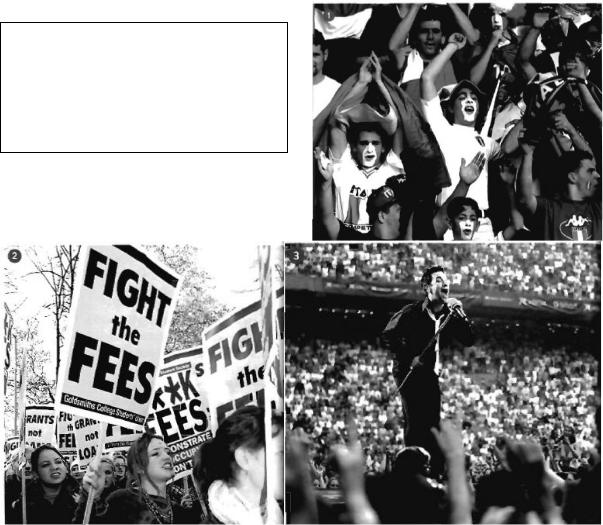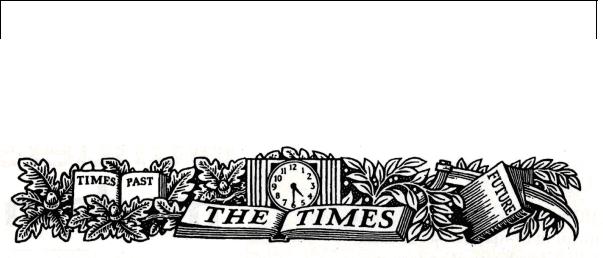
Кудинова Практическиы курс англиыского языка для студентов международник Ч.3 2014
.pdf
Министерство образования и науки Российской Федерации Национальный исследовательский ядерный университет «МИФИ»
Н.Л. Кудинова, К.В. Солнцева
Практический курс английского языка для студентов-международников
и специалистов в области наукоемких технологий. Уровень – бакалавриат.
II год обучения. Часть 3.
Social Matter, Going Global, Medicine, Prognosis for the Future
Рекомендовано к изданию УМО «Ядерные физика и технологии»
Москва 2014
УДК 811.111 (075)
ББК 81.2Англя7
К88
Кудинова Н.Л., Солнцева К.В. Практический курс английского
языка для студентов-международников и специалистов в области наукоемких технологий. Уровень – бакалавриат. II год обучения.
Ч. 3. Social Matter, Going Global, Medicine, Prognosis for the Future:
учебное пособие. М.: НИЯУ МИФИ, 2014. 176 с.
Учебное пособие состоит из четырех частей и представляет собой базовый учебный курс для студентов II курса Института международных отношений НИЯУ МИФИ, владеющих английским на уровне UpperIntermediate. Пособие включает в себя тексты, аудиоматериалы и задания, обеспечивающие развитие всех видов речевой деятельности (говорения, чтения, аудирования и письма), а также языковой, социокультурной и информационной компетенции студента. Дополнительные материалы представлены грамматической теорией, упражнениями и собранным в одном разделе активным словарем, изученными за семестр. Все дополнительные материалы тесно увязаны с заданиями для самостоятельной и работы и работы на семинарах.
Издание полностью соответствует программе курса «Английский язык» для 3, 4 семестра обучения групп У01-03/04, У02-03/04 ИМО НИЯУ МИФИ факультета управления и экономики высоких технологий. Пособие также может быть использовано в качестве дополнительной литературы по курсу «Английский язык» другими факультетами НИЯУ МИФИ и широким кругом лиц, изучающих английский язык.
Подготовлено в рамках Программы создания и развития НИЯУ МИФИ.
Рецензент Банкова О.К., канд. филол. нак, доц. кафедры № 62 «Специальная лингвистическая подготовка» Института международных отношений НИЯУ МИФИ
ISBN 978-5-7262-2012-3 |
© Национальный исследовательский |
|
ядерный университет «МИФИ», 2014 |
Корректор М.В. Макарова
Подписано в печать 20.11.2014. Формат 60х84 1/8.
Уч.-изд. л. 22,0. П. л. 22,0. Тираж 120 экз.
Изд. № 1/23. Заказ № 39.
Национальный исследовательский ядерный университет «МИФИ». 115409, Москва, Каширское ш., 31.
ООО “Клаб Принт”.
127018, Москва, Марьиной Рощи 3-й проезд, д. 40, корп. 1.
Contents
Unit Seven. Social Matter
Grammar: Verbs + to infinitive / -ing, Habits – will, would, used to,
Present Continuous for annoying habits________________________________4
Unit Eight. Going global
Grammar: Reporting verbs with or without direct object, reported speech_____47
Unit Nine. Health, Medicine and Prognosis for the Future
Grammar: Phrasal verbs, Adjectives and adverbs________________________93
Supplementary Materials:
Grammar Theory_______________________________________________159
Supplementary Translation Exercises______________________________168
Active Vocabulary to Units Seven, Eight and Nine ___________________169
List of References ______________________________________________175
3

Unit Seven. Social Matter
Vocabulary and Speaking: Events and Celebrations 1. In pairs: what different events
and celebrations can you see in the photos? Which would you most/ least like to attend? Why?
2. In which photos can you see the following things:
an audience clapping, a carnival, a huge crowd, people going wild, an outdoor concert, spectators cheering a procession, people carrying placards, people in fancy dress, people singing and chanting, people waving flags and banners, a demonstration
3. Discuss the following questions in small groups:
• Do you enjoy being in huge crowds or not? Why / Why not?
Useful Language
a Describing the event
What I liked most about it was ...
It was the most... I've ever...
On the whole, it was extremely impressive / good fun.
It was rather disappointing. It went on a bit too long.
It was absolutely huge / fascinating / exhausting, etc!
4
Vocabulary: Extreme Adjectives
1. Put the adjectives in pairs with similar meaning within the same column. Do not match the first column to the second.
good |
angry |
bad |
big |
cold |
devastated |
|
unique |
enormous |
|
exhausted |
fascinating |
||
excellent |
freezing |
furious |
hungry |
interesting |
||
essential |
small starving |
terrible |
tiny tired |
|||
unusual |
upset |
|
|
|
|
|
important |
|
|
|
|
|
|
2. Match the extreme adjectives in the first column with their equivalents:
1. |
huge |
a) |
very angry |
2. |
tiny |
b) |
very large |
3. |
terrifying |
c) |
very noisy |
4. |
deafening |
d) |
very wet |
5. |
freezing |
e) |
very hungry |
6. |
gorgeous |
f) |
very funny |
7. |
furious |
g) |
very beautiful |
8. |
soaked |
h) |
very cold |
9. |
terrible |
i) |
very bad |
10. |
hilarious |
j) |
very tired |
11. |
starving |
k) |
very small |
12. |
exhausted |
l) |
very frightening |
3.Which intensifiers (very, quite, really, absolutely, etc.) can you use before extreme adjectives?
4.Complete the gaps with an extreme adjective from exercise 2:
1.The procession takes place at night in the middle of winter: wear warm clothes or you'll be absolutely________.
2.The group was so far away, all we could see were some _____ figures in the far distance.
3.It was a ______ moment when violence broke out between the police and the demonstrators.
4.The crowd had been standing in the rain for hours and was absolutely
________, but everyone remained good-humoured.
5.The crowd was really ________ when the referee sent off the home team's captain.
6.We were sitting right in the front row, so at times the noise of the group was absolutely________.
7.The film was so________ that many members of the audience walked out before the end.
8.Pictures of the concert were projected onto a ___video screen, so everyone could see perfectly.
9.The march lasted for hours and after they'd been walking for such a long time everyone was________.
5

10.The evening got off to a great start with a _______ speech by the principal: the whole audience was laughing.
11.There were huge queues at the food stalls, so by the time we got to the front we were absolutely ________.
12.All her fans agreed that Lucinda looked absolutely ________in her designer dress.
5. Choose the correct adjective or adverb. Sometimes both choices are possible.
1.Let's stay at home, it's very / absolutely freezing outside!
2.I was really / absolutely devastated when I heard the news.
3.This work of art is absolutely / a bit unique.
4.It's really / very important to have good friends.
5.Her new mobile is slightly / extremely unusual.
6.Be careful. The boss is very / absolutely angry.
7.These photographs are very good / excellent.
8.Mike's new house is really enormous / big.
9.Her latest book is extremely interesting / fascinating.
10.I'm absolutely hungry / starving - can we get something to eat?
11.Maria was a bit devastated / upset by her exam results.
6. What does the word ‘nice’ really mean in the following word combinations? Choose two words from the box for each phrase:
beautiful charming delicious friendly picturesque productive relaxing restful stylish tasty trendy useful
1) |
a nice view |
3) |
a nice holiday |
5) |
a nice person |
2) |
a nice meal |
4) |
a nice jacket |
6) |
a nice meeting |
Grammar Revision: The Passive
The Times, symbol of tradition and establishment
THE TIMES is one of Britain’s oldest and most influential newspapers. It (a)
__________ (begin) its life in 1785. It (b) __________ (start) by John Walter. In those days it (c) __________ (cost) two and a half old pennies. In the nineteenth century, The Times (d) __________ (develop) a reputation for accurate reporting and independent editorial views. Now it (e) __________ (sell) over 650,000 copies a day. It (f) __________ (publish) in London, along with its sister newspaper, The Sunday Times, which (g) __________ (have) at least ten
6

sections and takes all week to read! ‘The Times (h) __________ (have) an excellent reputation for over 200 years,’ said its editor, who (i) __________
(work) for the paper since 1980, ‘and now we (j) __________ (try) our best to continue that tradition in order to produce a newspaper for the twenty-first
century.’
Listening: A memorable Event
1. Before you listen make sure you know
this vocabulary:
1) to attend sth, an overriding feeling, 2) a
street fair, St. Basil’s cathedral, a choir, to be surrounded by, a cannon, 3) gosh, a gig, to take no notice of sb/sth, spectacular, to dive off the stage (to stage-dive), 4) an eve
(a Christmas eve, a New Year’s eve), rose petals, to go down to some place, ten hours previously.
2. Listen to four people describing а memorable event they attended and answer the following questions about each person:
a)What was the event?
b)Where and when did it take place?
c)Which other people are mentioned?
d)What was the atmosphere like?
3.Look at the sentences from the recordings. Which event is each sentence
about?
1)The bodies were being passed along by the other people in the audience.
2)We had to ... throw rose petals into the sea.
3)I must have been one of about a million people.
4)There were loads and loads of people all over the place.
5)I had to wear only white and gold clothes.
6)They had this choir with five hundred voices.
7)I found myself crying at some points and laughing at other points.
8)It was utterly spectacular.
9)In some way it was really, really magical.
10)It was one of the most moving events I've ever been to.
11)People from the audience were ... just diving off the stage.
12)They just closed off streets and they had street fairs and parties.
13)The atmosphere was so positive.
14)The city just completely came alive.
7

Vocabulary, Reading and Writing: Extreme Adjectives
1. Look at the adjectives in the box. Find some with similar meanings.
good bad marvellous huge nice wet clever enormous fabulous excited surprised valuable small silly funny interesting thrilled delighted priceless amazed tiny hilarious wonderful fantastic ridiculous awful brilliant pleased fascinating gorgeous big soaking excellent beautiful
Which adjectives go with which of these adverbs: absolutely, very? Why?
2. Complete the conversations with suitable adverbs and adjectives.
Practise them with your partner.
1) A Did you get very wet in that shower?
В Shower! It was a downpour. We’re__________!
2) A I bet you were quite excited when your team won. В Excited! We were__________!
3) A I thought she looked rather silly in that flowery hat, didn’t you?
В Silly! She looked__________!
4) A Come on, nobody’ll notice that tiny spot on your nose.
В They will, I just know they will! It’s__________!
5)A I thought the last episode of Friends was absolutely hilarious.
В Mmm. I wouldn’t say that. It was__________but not hilarious.
6)A Len left early. He wasn’t feeling well.
B I’m not surprised. When I saw him this morning he looked__________!
3.Make similar conversations with your partner. You could talk about films, people you know, the weather ...
4.Read the speech. Who is speaking? Why? Rewrite the speech and make it
sound more extreme by changing and adding adjectives and adverbs.
“I am very surprised and pleased to receive this award. I am grateful to all those nice people who voted for me. 'Red Hot in the Snow’ was a good movie to act in, not only because of all the clever people involved in the making of it, but also because of the beautiful, exciting and often quite dangerous locations in Alaska. None of us could have predicted that it would be such a big success. My special thanks go to Marius Aherne, my director; Lulu Lovelace, my co-
star; Roger Sims, for writing a script that was both interesting and funny, and last but not least to my wife, Glynis, for her valuable support. I love you all.”
8

Reading: Festivals |
|
|
|
|
|
1. Before you read the texts |
match |
the vocabulary |
units |
together: |
|
1. |
pungent cheese |
a. |
ежегодный |
|
|
2. |
annual |
b. |
странный |
|
|
3. |
bizarre costumes |
c. |
отвечать (на агрессию) |
|
|
4. |
a lane |
d. |
мягкий |
|
|
5. |
to be dedicated to sth |
e. |
острый |
|
|
6. |
sauces, mustards and dips |
f. |
быть посвященным чему-либо |
||
7. |
squishy tomatoes |
g. |
тропинка, дорожка, трек |
||
8. |
to pelt the crowd |
h. |
соусы, горчицы, подливки |
||
9. |
to retaliate |
i. |
швыряться |
в |
кого-либо |
2.Read the texts, try to guess the meaning of the underlined words from the context.
3.What is the joke behind the slogan of the second festival?
4.Why are these statements false?
1. The English village of Stilton was originally famous for the cheese rolling
tradition.
2.Wooden replicas of cheese heads are used instead of actual cheese because the competitors often eat it during the competition.
3.The Fiery Food festival is a chance to sample the tastiest sauces and dips in the world.
4.The rule of the La Tomatina festival is not to hit women, children or old people.
5.Search the Internet for an unusual national or regional festival which would reflect the mentality of the country and tell the class about it.
Stilton Cheese Rolling
May Day is a traditional day for celebrations, but the 2.000 residents of the English village of Stilton – famous for its pungent blue cheese – must be the only people in the world who include cheese rolling in their annual plans. Teams of four, dressed in a variety of bizarre costumes, roll a complete cheese along a
9
50-meter course. On the way, they must not kick or throw their cheese, or go into their opponents' lane, competition is intense and the chief prize is a complete Stilton cheese weighing about four kilos (disappointingly, but understandably the cheeses used in the race are wooden replicas). All the competitors are served with beer or port wine, the traditional accompaniment for Stilton cheese.
Fiery Foods Festival - The Hottest Festival on Earth
Every year more than 10,000 people head for the city of Albuquerque, New Mexico. They come from as far away as Australia, the Caribbean and China, but they all share a common addiction – food that is not just spicy, but hot enough to make your mouth burn, your head spin and your eyes water. Their destination is
the Fiery Food and BBQ Festival (official slogan ‘Proud Sponsor of Global
Warming’) which is held over a period of three days every March, and is a chance to sample the world's hottest sauces, mustards and dips, and also to watch cookery demonstrations dedicated to all things hot and spicy. You might like to try a chocolate-covered habanero chili pepper – officially the hottest chili pepper in the world – or wasabi and apple sauce, or any one of the thousands of products that are on display. But one thing's for sure - if you don't like the sensation of a burning tongue, this festival isn't for you!
La Tomatina – The World's Biggest Food Fight
On the last Wednesday of every August, the Spanish town of Bunol hosts La Tomatina – the world's largest food fight. A week-long celebration leads up to a monstrous tomato battle as the climax of the week's events. Early in the morning sees the arrival of large trucks with their precious cargo of squishy tomatoes - official fight-starters get things going by pelting the crowd – who can be sure to retaliate.
The battle lasts little more than half an hour, in which time around 50,000 kilograms of tomatoes have been hurled at anyone or anything that moves, runs, or fights back. Then everyone heads down to the river to make friends again - and for a much-needed wash!
Answers to page 30:
1.Congratulations! That IS good news!
2.What a pity. Some other time, perhaps.
3.Oh dear. When did you last have them?
4.Why? What’s wrong with it?
5.Nothing serious, I hope.
6.That’s nice. How long are you going for?
7.I hope it goes well for you.
8.You poor thing.
9.Cheers!
10.Why? What happened then?
10
